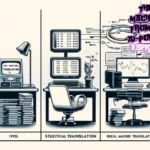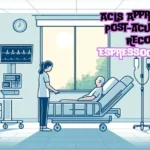Are you interested in a rewarding career in the healthcare industry but don’t want to spend years in medical school? Becoming a certified medical billing and coding specialist might just be the perfect fit for you! In this comprehensive guide, we’ll walk you through everything you need to know about entering this exciting field and achieving certification.
Contents
What is Medical Billing and Coding?
Medical billing and coding are essential processes in the healthcare industry. It involves translating medical diagnoses, procedures, and services into universal alphanumeric codes. These codes are used for billing purposes, ensuring healthcare providers receive proper reimbursement from insurance companies.
Why Become Certified?
While certification is not always mandatory for employment in medical billing and coding, it offers several advantages. Certification demonstrates your competence and commitment to the profession, making you a more attractive candidate to employers. Additionally, certified professionals typically command higher salaries and have better advancement opportunities.
Prerequisites for Certification
To become certified, you’ll need a high school diploma or equivalent. While formal education is not always required, completing a medical billing and coding program from an accredited institution can provide you with the knowledge and skills needed to pass the certification exam.
Choosing the Right Training Program
When selecting a training program, look for one that covers medical terminology, anatomy, physiology, and coding systems such as ICD-10 and CPT. Additionally, consider programs that offer hands-on experience or internships to help you gain practical skills. Atlantic RCM is the best One.
Understanding the Certification Exam
The certification exam typically covers topics such as medical coding guidelines, healthcare regulations, and reimbursement methodologies. Be sure to review the exam blueprint provided by the certifying organization to understand the content and structure of the exam.
Tips for Exam Preparation
Start preparing for the exam early and create a study schedule to stay organized. Utilize study guides, practice exams, and online resources to reinforce your understanding of key concepts. Additionally, consider joining study groups or seeking guidance from experienced professionals.
Taking the Certification Exam
On the day of the exam, arrive early, well-rested, and confident. Pace yourself during the exam and carefully read each question before selecting your answer. Don’t be afraid to skip difficult questions and come back to them later.
Continuing Education Requirements
After becoming certified, you’ll need to fulfill continuing education requirements to maintain your certification. This may involve completing a certain number of continuing education units (CEUs) or participating in ongoing training programs to stay current with industry developments.
Career Opportunities
Certified medical billing and coding specialists are in high demand across various healthcare settings, including hospitals, physician offices, and insurance companies. With experience and additional certifications, you can explore opportunities for advancement into supervisory or managerial roles.
Salary Potential
The salary for certified medical billing and coding specialists can vary depending on factors such as location, experience, and employer. However, according to the Bureau of Labor Statistics, the median annual wage for medical records and health information technicians was $44,090 in May 2020.
Conclusion
Becoming a certified medical billing and coding specialist opens the door to a fulfilling career in the healthcare industry. By following the steps outlined in this guide by Atlantic RCM, you can embark on the journey towards certification with confidence and set yourself up for success in this dynamic field. If you’re ready to take the next step towards a rewarding career, start exploring training programs and preparing for the certification exam today!
FAQs
1. Is certification necessary to work as a medical billing and coding specialist?
Yes, certification is not always required but highly recommended for better job prospects and salary potential.
2. How long does it take to become certified?
The timeline varies but typically ranges from six months to two years, depending on the training program and individual pace of study.
4. How often do I need to renew my certification?
Most certifications need to be renewed every two to three years, depending on the certifying organization’s requirements.
5. What are the consequences of failing the certification exam?
If you fail the exam, you can retake it after a waiting period determined by the certifying organization. It’s essential to use the experience as a learning opportunity and focus on areas where you need improvement.











